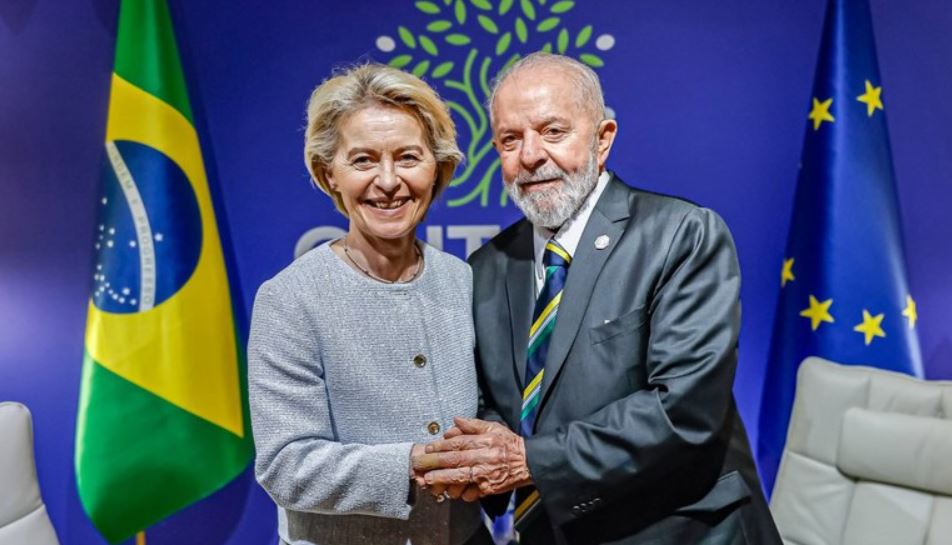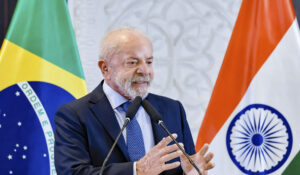
Published 08/15/2024 16:43 | Edited 08/15/2024 17:26
President Luiz Inácio Lula da Silva reported that he called the president of the European Commission, Ursula von der Leyen, to say that South American countries are willing to sign the Mercosur-European Union agreement.
“It’s up to you to want it. Now it’s no longer up to us,” the president said over the phone to Ursula von der Leyen.
The two have been holding talks of interest to both economic blocs since the beginning of 2023.
The President of the European Commission was already received at the Palácio do Planalto, in Brasília, in June last year, and both met at the UN Climate Conference, in the United Arab Emirates, last December.
Read more: Lula calls for balance in negotiations between Mercosur and the European Union
According to Lula, Brazil and its partners in the South American bloc did their part and now it is up to the Europeans to resolve their issues.
“Now it depends on the European Union because we have already decided what we want, and we have already communicated it to them. The EU has to deal with France, which has difficulty with Brazilian agricultural products. It would certainly have to compete with our Minas cheese and our wine from Rio Grande do Sul,” he said.
Last month, during the 64th Summit of Mercosur Heads of State, the president said that the agreement had not been concluded “because the Europeans have not yet managed to resolve their own internal contradictions”.
The Brazilian president also addressed the issue when he received a visit from the president of Italy, Sergio Mattarella.
“As I did at the recent Mercosur Summit in Asunción, I reiterated to the Italian president Brazil’s interest in concluding, as soon as possible, an agreement with the European Union that is balanced and that contributes to the development of both regions,” he said.
Lula reinforced to the Italian that progress on the agreement depended on the Europeans, even with some demands that harmed the agreement between the two countries.
“Measures such as the carbon tax imposed unilaterally by the European Union could affect five of the ten most exported Brazilian products to the Italian market. Reducing CO2 emissions is imperative, but it should not be done based on unilateral measures that will impact the lives of Brazilian producers and Italian consumers,” Lula noted at the time.
Source: vermelho.org.br

